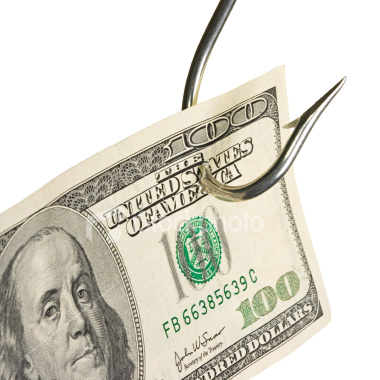 Jacksonville, Florida Trustees look for payments made by debtors to creditors within ninety days of the debtor’s bankruptcy filing. The trustee can recover these funds under the theory of “Preferential Payment”. A “Preferential Payment” is any payment made by a debtor to a creditor within ninety days of filing bankruptcy. The theory behind allowing return of those funds is this: the debtor paid one creditor and not the others, the debtor preferred that creditor over the others and that is unfair, so the court will require the money to be returned so it can be distributed evenly among the existing creditors.
Jacksonville, Florida Trustees look for payments made by debtors to creditors within ninety days of the debtor’s bankruptcy filing. The trustee can recover these funds under the theory of “Preferential Payment”. A “Preferential Payment” is any payment made by a debtor to a creditor within ninety days of filing bankruptcy. The theory behind allowing return of those funds is this: the debtor paid one creditor and not the others, the debtor preferred that creditor over the others and that is unfair, so the court will require the money to be returned so it can be distributed evenly among the existing creditors.
This ninety day period is extended to two years if the creditor is considered an “insider” a.k.a. friends or relatives. So, if you paid your father back $2,000 on a debt last year and you file bankruptcy today, he may have to pay the $2,000 back to the trustee. This two year period can be extended should there be a case of actual fraudulent intent on behalf of the debtor.
There is a disagreement among the courts as to whether or not a debtor can use their available exemptions on money they used to pay creditors before a bankruptcy. Exemptions refers to property limits established by the legislature that say what the debtor can keep in a bankruptcy as it is exempt from collection. In the example of the father above, there are some jurisdictions where the debtor could use their available remaining exemptions to protect the father from having the pay back the funds on the premise that if the funds were in the control of the debtor, they could be protected. In other jurisdictions, those funds would not be protected because by paying them to the father, the debtor did not have the proper mental state of desiring to keep the funds; the very root of the cause for keeping exempt property is that the debtor seeks to keep the property.
Regardless of whether your jurisdiction follows the “No Harm, No Foul” approach allowing debtors to exempt preferential payments or not, the debtor always has the option of filing the money as exempt on the petition and seeing if the trustee objects to the debtor’s claim of exemptions. If the trustee does not object within thirty days of the filing as prescribed by law, the claim of exemptions is allowed by default.
If you have questions about payments you’ve made or what you can exempt in bankruptcy, contact a Jacksonville Bankruptcy Lawyer or call us at (904) 685-1200 for a free consultation.
Published on:
 Jacksonville Bankruptcy Lawyer Blog
Jacksonville Bankruptcy Lawyer Blog


